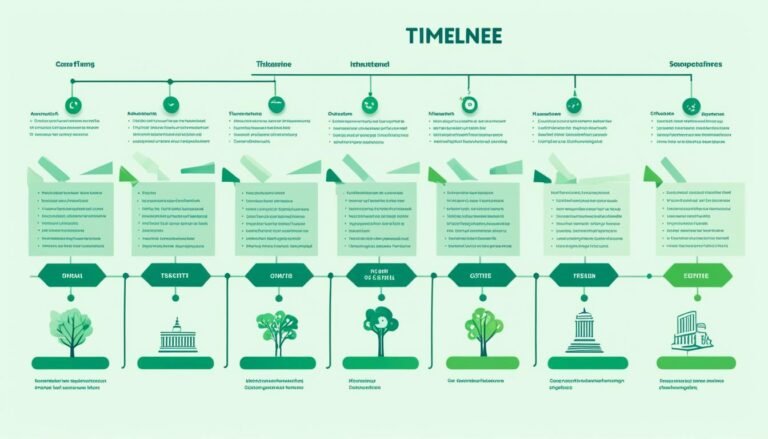The Central Bank Acts Explained: Regulatory Framework for Irish Financial Institutions
Did you know the Central Bank of Ireland oversees more than 10,000 financial businesses in the country? This means there are a lot of rules in place to keep Ireland’s money world safe. Since 2014, both the Central Bank of Ireland and the European Central Bank (ECB) look after the banks. This double effort makes sure things are in good order.
The bank’s regulations are critical for a smooth financial system. They ensure that these businesses have enough money, manage risks well, and are governed effectively. This set of rules also aims to keep the public safe. It requires companies to be honest, fair, and work for their customer’s best good.
How the Central Bank of Ireland watches over these businesses depends on the risk they might bring. Companies that could harm financial stability or customers are checked very closely. With more Central Bank staff, they can do these checks better. If a business breaks the rules, the Central Bank can take strong action to stop them and prevent others from doing the same.
Key Takeaways
- The Central Bank of Ireland oversees more than 10,000 financial service providers in Ireland.
- Supervision of banks in Ireland is a joint effort between the Central Bank of Ireland and the European Central Bank.
- Prudential regulation ensures firms have proper funding, risk controls, and governance.
- Consumer protection is vital, requiring firms to act in the best interests of their customers.
- Risk-based supervision targets higher-risk firms with closer scrutiny.
- Enforcement actions are taken against non-compliant firms to maintain sector integrity.
- The number of Central Bank staff has significantly increased to support these regulatory functions.
The Central Bank of Ireland’s Role in Financial Regulation
The Central Bank of Ireland (CBI) is key to keeping Ireland’s finances stable. It makes sure the money system runs smoothly and protects people’s interests. The CBI works closely with the European Central Bank (ECB). Together, they set rules for the financial sector across Europe.
Stability of the Financial System
Stabilizing the financial system is the top job of the CBI. Since November 4, 2014, the ECB has overseen big banks through the SSM. This move balanced the supervision of major and smaller banks. It helped make sure the system checks and balances itself well.
Proper and Effective Regulation of Financial Institutions
Keeping the financial markets trustworthy is very important. The CBI has strict rules to regulate financial services and keep payment systems running well. It also ensures laws like the Central Bank Acts are followed. These steps make sure that Irish financial companies are safe and reliable.
The CBI also keeps an eye on credit unions and other financial bodies. Its fitness and probity regime check if leaders are qualified and honest. Following the Consumer Protection Code and the Mortgage Arrears Code is a must for their success.
Consumer Protection and Resolution in Credit Institutions
The CBI focuses on protecting consumers. It uses tools like the Central Credit Register and sets tough rules against money laundering and financing terrorism. These measures are to make sure people are safe and their money is used legally.
The CBI’s work is crucial for a strong economy. By enforcing rules and overseeing the financial system in Ireland, it keeps things fair. This, in turn, helps Ireland’s economy grow and withstand challenges.
Core Objectives of the Central Bank Acts
The Central Bank Acts aim to keep Ireland’s financial world stable. They help make sure the economy stays steady by watching over the prices we pay for things. The Central Bank of Ireland is key to these efforts. It sets rules for banks and makes sure they follow them well.
Price Stability
Keeping prices steady is very important for the economy to do well. The CBI works to control how fast prices go up. This helps keep the euro’s value strong. The European Central Bank (ECB) also helps out, making sure the same rules apply all across Europe. Together, they keep an eye on prices and interest rates.
The Stability of the Overall Financial System
The finance system needs to be safe and sound, which is at the heart of the Central Bank Acts. The biggest banks in Ireland hold nearly half of all the money. So, they need close watching to keep things from going bad. The CBI makes sure banks have enough money saved up, are careful with loans, and have good investments. They also check on them often to make sure all is well.
Resolution of Financial Difficulties in Banks
When banks face big problems, the CBI steps in, thanks to the Central Bank Acts. They can tell banks to make changes and do things to protect our money. Key laws, like the 2013 Central Bank Act, help them do this job better. This way, your money is safer, and banks are better prepared for any tough times.
The way the Central Bank works with banks right from the start, when they get their license, shows they mean business about keeping banks strong and honest. They use very strict rules and check often. This keeps problems away and means they can quickly handle any tough times in the finance world.
| Objective | Strategic Actions | Outcomes |
|---|---|---|
| Price Stability | Set inflation and interest rates, coordinate with ECB | Stable purchasing power, economic growth |
| Financial System Stability | Regular supervision, strong capital and liquidity requirements | Robust banking sector, minimized systemic risks |
| Resolution of Financial Difficulties | Intervention policies, license conditions, loan classifications | Effective crisis management, safeguarding assets |
The Regulatory Framework for Irish Financial Institutions
The framework for Irish financial institutions is set by Ireland and Europe. It’s all about the rules and checks that must be followed. These are spelled out in the Financial services regulations Ireland.
European Central Bank’s Role
The European Central Bank (ECB) is key in Ireland’s financial rules. It leads in setting up the big policies. But, keeping an eye on banks day to day is left to the Central Bank of Ireland. This helps watch over things closely within the country.
Single Supervisory Mechanism
In the ECB’s Single Supervisory Mechanism, the Central Bank of Ireland looks after smaller banks. These banks might be less big, but they must still follow all rules. This system is designed to keep the economy steady and the rules the same across Europe.
Prudential Supervision and Risk Management
The Central Bank of Ireland focuses on watching over how banks run and manage risks. They use systems like PRISM to rank each bank’s risk level. This helps the bank decide where to put its focus and attention.
There are also rules for how bank leaders and staff should meet certain standards. This is to make sure banks run well and don’t bring harm to the system. The Central Bank checks if these rules are always followed. This is to keep the whole financial system safe.
| Role | Name |
|---|---|
| Governor of the Commission | Professor Patrick Honohan |
| Head of Financial Services Directorate | Matthew Elderfield |
| Head of Central Bank Directorate | Tony Grimes |
| Assistant Director General for Regulatory Risk and Enforcement | Con Horan |
| Other Assistant Director General roles | Ongoing recruitment |
To wrap it up, there’s a complex system of rules overseen by Ireland and the ECB. The aim is a strong, safe, and open financial world. The ECB and Central Bank work together to make sure Irish banks are well managed and safe.
Key Legislation Governing Financial Institutions in Ireland
In Ireland, financial institutions follow a set of laws ensuring they are overseen well and transparent. The Central Bank Acts 1942-2018, is where it all starts. These laws have changed as new financial issues arise, aiming to keep the Irish banking system safe.
The Central Bank Acts 1942-2018
Irish financial laws are heavily tied to the Central Bank Acts 1942-2018. They give the Central Bank of Ireland the power to watch over financial places. Also, they let the CBI punish banks and people who break the rules. These laws also say banks must get a license to do banking work.
The European Union (Capital Requirements) Regulations 2014-2021
The European Union (Capital Requirements) Regulations 2014-2021 add to Ireland’s banking laws. These rules make Irish banks keep enough money, manage risks well, and stay financially sound. The European Central Bank (ECB) mainly watches over this. For smaller banks, the CBI steps in. Overall, these rules help keep Ireland’s financial system strong.
The Consumer Credit Act 1995 and Amendments
The Consumer Credit Act 1995 and its changes are very important for consumer safety in finance. They cover how loans are offered and keep borrowers from unfair loans. The CBI makes sure banks follow these rules. This helps put consumers first and build faith in finance.
Source Links
- Explainer – What is financial regulation and why does it matter?
- Revised Acts
- Central Bank (Individual Accountability Framework) Act 2023
- In brief: banking regulatory framework in Ireland
- Role of the Central Bank
- 3. The regulatory and supervisory framework
- Report on the Observance of Standards and Codes: Ireland — Banking Supervision
- Ireland’s New Regulatory Framework – Recent Developments – WILLIAM FRY
- Financial Services Regulatory Update – January 2024 Round Up
- In brief: banking regulatory framework in Ireland
- Banking Regulation 2024 – Ireland | Global Practice Guides








